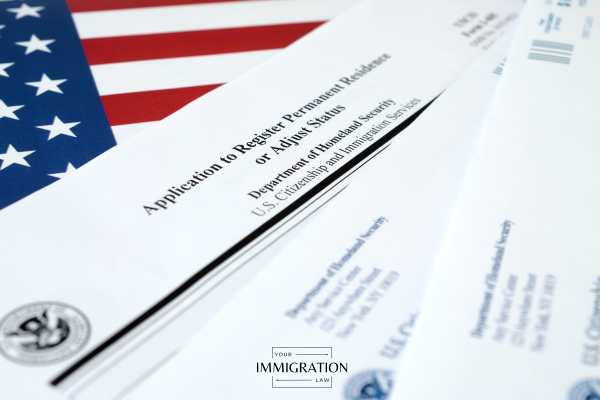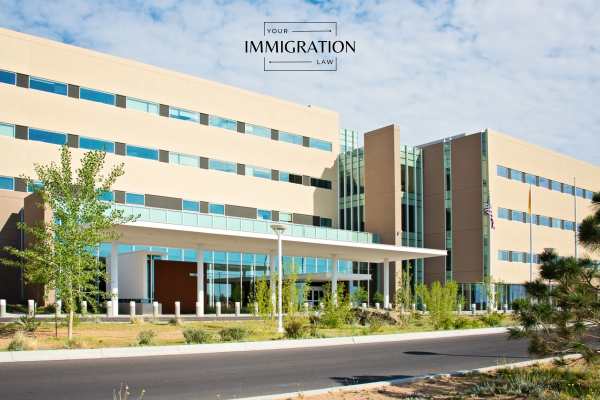The EB-5 investor visa provides a pathway to U.S. residency through significant financial investment in a U.S. business. This visa program can be an excellent opportunity for foreign investors, but the process involves complex regulations, including meeting specific investment thresholds and creating jobs for American workers. An experienced EB-5 attorney can guide you through these requirements, helping you structure your investment to meet the criteria and avoid common pitfalls.
If you're considering the EB-5 visa, it's essential to have professional legal support to navigate the complexities of this program. Call an EB-5 investor visa attorney today at 313-631-8080 to discuss your investment options and receive the guidance needed for a successful application. Take the first step toward securing your U.S. residency through investment.
Benefits of the EB-5 Visa for Foreign Investors
The EB-5 visa program offers several compelling benefits for foreign investors seeking to obtain permanent residency in the United States. Here’s a look at the key advantages:
Path to U.S. Permanent Residency and Family Benefits
One of the most significant benefits of the EB-5 visa is that it provides a direct path to obtaining U.S. permanent residency, also known as a Green Card. This allows investors and their immediate family members to live, work, and study in the U.S. without the need for employer sponsorship or additional visa renewals.

While the EB-5 visa itself does not guarantee U.S. citizenship, it is a pathway to becoming a U.S. citizen. After holding a Green Card for a certain period (typically five years), EB-5 investors and their family members can apply for U.S. citizenship through naturalization.
Working with an investment immigration attorney in Dearborn can be very helpful when it comes to changing your EB-5 investor program visa to citizenship. They will be able to guide you through all aspects of EB-5 law and ensure the best possible results.
Opportunity for Investment
The EB-5 program allows foreign nationals to invest in U.S. businesses, either directly or through a regional center. This can provide access to lucrative business opportunities and potential returns on investment. By investing in job-creating enterprises, investors contribute to the U.S. economy while working toward their immigration goals.
Investors have the option to choose their investment route. They can either invest directly in a new commercial enterprise or through a regional center, which is a third-party organization that manages EB-5 investments. This flexibility allows investors to select opportunities that align with their interests and risk tolerance.
Eligibility Criteria for EB-5 Investors
To qualify for an EB-5 visa, foreign investors must meet specific criteria set by U.S. Citizenship and Immigration Services (USCIS). Here’s a detailed look at the eligibility requirements:
Investment Amount and Business Requirements
Investors must make a qualifying capital investment in a U.S. business. The standard minimum investment amount is $1.05 million. However, if the investment is made in a targeted employment area (TEA)—a rural area or an area with high unemployment—the minimum investment is reduced to $800,000. The business must be a new commercial enterprise or a troubled enterprise undergoing significant reinvestment and expansion.
The enterprise receiving the investment must be a for-profit entity that is a new commercial enterprise. This means it must have been established after November 29, 1990, or be an existing enterprise undergoing significant changes. The business must be engaged in lawful business activities and must not be considered a passive investment. An example of a passive investment is real estate that is not actively managed.
Job Creation Requirement
The investment must create or preserve at least 10 full-time jobs for U.S. workers within two years of the investor's admission to the U.S. The purpose of this is to boost economic growth within the United States.
If investing through a regional center, that manages EB-5 investments, job creation can be direct or indirect. Direct job creation involves jobs directly within the enterprise, while indirect job creation refers to jobs resulting from the enterprise's economic impact on the community.
Active Participation
Foreign nationals must demonstrate that they will be actively involved in the management of the enterprise. This does not mean they must run the day-to-day operations personally, but they must be involved in the decision-making process or have a role in the business’s governance.
Source of Funds
Investors must prove that the funds used for the investment were obtained legally. This involves providing detailed documentation about the source of the funds, including financial records, tax returns, and evidence of the lawful origin of the money. This requirement ensures that the investment is not derived from illicit activities.
The investment must be at risk, meaning the funds must be used for business purposes and cannot be easily withdrawn or guaranteed. The investment should be committed to the business and subject to potential loss if the enterprise fails.
No Criminal Record
Applicants must not have a criminal record that would disqualify them from obtaining an EB-5 visa. USCIS conducts background checks as part of the application process to ensure applicants meet the character requirements.

Meeting these eligibility criteria is essential for successfully obtaining an EB-5 visa. Consulting with an immigration attorney experienced in EB-5 visas can provide valuable assistance in preparing your application and ensuring compliance with all requirements.
Steps in the EB-5 Visa Application Process
The EB-5 process involves several key steps, each requiring careful preparation and attention to detail. Here’s a comprehensive guide to navigating the EB-5 visa application:
- Determine Eligibility: Before starting the EB-5 application process, ensure that you meet all eligibility requirements for the EB-5 immigrant investor program. This includes confirming that you have the required investment funds and a suitable business plan.
- Choose an Investment Type: Decide whether you will make a direct investment in a new commercial enterprise, invest through a regional center, a joint venture, or choose another investment type such as a troubled enterprise or franchise.
- Prepare Your Investment: Once you’ve chosen your investment type, you’ll need to prepare the investment funds and commit them to the business. Ensure that the funds are legally obtained and are "at risk" as required by the EB-5 program.
- File Form I-526: Submit Form I-526, Immigrant Petition by Alien Investor, to USCIS. This form includes documentation proving that you meet all EB-5 requirements, including evidence of your investment and the business’s ability to meet job creation criteria.
- Await I-526 Approval: USCIS will review your EB-5 petition and supporting documents. The processing time can vary, but you should expect it to take several months. During this period, USCIS may request additional information or clarification.
- Apply for an Immigrant Visa or Adjustment of Status: Once your I-526 petition is approved, you’ll need to apply for an immigrant visa or adjust your status. If outside the U.S., file Form DS-260, Online Immigrant Visa Application, with the U.S. Embassy or Consulate in your home country. If in the U.S., file Form I-485, Application to Register Permanent Residence or Adjust Status, with USCIS.
- Receive Conditional Permanent Residency: Upon approval of your visa or adjustment of status, you and your family members will receive conditional permanent residency status for two years. This status allows you to live and work in the U.S. but is subject to review and renewal.
- File Form I-829: Within 90 days before the expiration of your conditional residency, file Form I-829 Petition by Investor to Remove Conditions on Permanent Resident Status. This petition demonstrates that your investment has met all requirements, including job creation.
- Receive Permanent Residency: Once your Form I-829 is approved, the conditions on your permanent residency will be removed, granting you and your family full permanent resident status. You’ll receive a Green Card valid for 10 years, after which you can apply for renewal or consider U.S. citizenship.
Navigating the EB-5 visa application process can be complex. This is why it’s advisable to work with experienced immigration attorneys to ensure that all steps are completed accurately.
Types of Investments for the EB-5 Visa
When applying for an EB-5 visa, foreign investors have several options for making their required investment in the U.S. business. Each type of investment has its own set of considerations and benefits. Here’s a look at the primary types of investments available for EB-5 visa applicants:
Direct Investment
A direct investment involves investing directly into a new commercial enterprise that the investor actively manages or controls. This can include starting a new business from scratch or investing in an existing business. The catch is that it needs to require substantial operational changes or expansion.
With direct investment, the investor is more involved in the day-to-day operations and management of the business. This type of investment requires:
- Active Management: The investor must be involved in the business's management and decision-making.
- Job Creation: The investment must create at least 10 full-time jobs for U.S. workers.
- Investment Amount: Typically $1 million, or $500,000 if in a targeted employment area.
Regional Center Investment
Regional centers are organizations designated by USCIS to manage EB-5 investments and projects. Investing through a regional center offers several advantages, including a more hands-off approach to business operations. Regional centers focus on specific industries or geographic areas and often pool investments from multiple investors to fund larger projects. Benefits of regional center investments include:
- Indirect Job Creation: Jobs created through the regional center’s projects can be counted, including both direct and indirect jobs.
- Less Involvement Required: Investors do not need to be actively involved in the daily operations of the business.
- Investment Amount: Similar to direct investments, typically $1 million, or $500,000 if in a TEA.

Targeted Employment Area Investment
A TEA is an area designated by USCIS as having high unemployment or being rural. Investing in a TEA qualifies for the reduced investment threshold of $500,000. TEA investments can be made either directly or through a regional center. Benefits include:
- Reduced Investment Threshold: Lower minimum investment amount of $500,000.
- Economic Impact: Investments in TEAs contribute to economic development in areas with high unemployment or rural regions.
Troubled Enterprise Investment
A troubled enterprise is an existing business that is experiencing significant financial difficulties and needs investment to sustain its operations. To qualify as a troubled business, the company must demonstrate that it has experienced a net loss of at least 20% of its net worth over the past two years. Investing in a troubled enterprise can:
- Revitalize Existing Businesses: Help struggling businesses recover and expand.
- Qualify for Reduced Investment Threshold: If the enterprise is in a TEA, the reduced investment amount of $500,000 may apply.
Franchise Investment
Choosing the right type of investment depends on the investor's goals, risk tolerance, and level of involvement desired. Consulting with an immigration attorney and financial advisor experienced in EB-5 investments can help in selecting the best option and ensuring that all requirements are met.
What Happens if My EB-5 Investment Fails to Create the Required Number of Jobs?
If your EB-5 investment fails to create the required number of jobs, it can have serious implications for your immigration status and investment. Here’s what you need to know:
- Impact on Conditional Residency: The failure to create the required jobs with your foreign investment can lead to the denial of Form I-829, Petition by Investor to Remove Conditions on Permanent Resident Status. This form is necessary to transition from conditional to permanent residency.
- Possibility of Job Creation Adjustment: Regional centers can include indirect jobs in their job creation calculations. You may still meet the requirement if the regional center demonstrates that the investment contributed to indirect job creation. Additionally, USCIS may issue an RFE requesting additional evidence to justify the investment’s impact on job creation.
- Options for Reinvestment: Reinvesting in another qualifying EB-5 project could potentially rectify the situation. This process involves transferring your funds to a new investment that meets the job creation criteria.
- Legal and Financial Recourse: If the failure to create jobs is due to mismanagement or fraud you may have grounds for legal action against the regional center or project operators if they misrepresented the project or failed to fulfill their obligations.
Handling a failure to meet job creation requirements involves complex legal and financial considerations. Proactive steps and professional guidance from an investor visa lawyer are essential to mitigate risks and protect your immigration status.
Secure Your EB-5 Visa with Confidence
Securing an EB-5 visa is a significant step toward U.S. residency, but navigating the application process can be challenging. With the right legal support from an experienced immigration law firm, you can ensure your investment meets all the requirements.
Transform your investment into a pathway for permanent residency! Contact Your Immigration Law in Dearborn, Michigan now to ensure a smooth EB-5 visa application process.